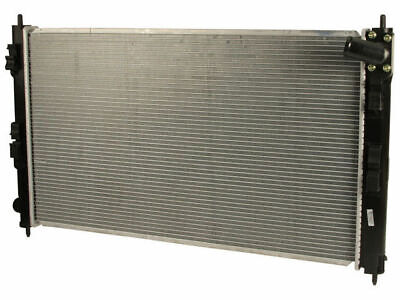GradeAutoPart.com can help you find a used radiator quickly and easily. All used parts are checked before sale. Everything mechanical is checked for operability. We visually check the parts for any cracks, leaks, damages or malfunctions before placing them in our inventory system. Our inventory of used radiators is updated daily to provide our customers with fresh and up-to-date information.
What is Radiator and The Purpose of Radiator
A car radiator is an essential component of a vehicle’s cooling system that helps regulate the temperature of the engine by dissipating heat generated during the combustion process. The radiator is typically located at the front of the engine bay and is made up of a series of thin tubes, called the core, which are surrounded by thin metal fins.
In addition to regulating the engine’s temperature, the car radiator also helps prevent engine damage by preventing the engine from overheating. Overheating can cause engine components to expand and warp, leading to costly repairs or even engine failure.
What’s the reason Behind Lancer Radiator Fails
The Mitsubishi Lancer cooling system passes antifreeze throughout the engine. The main parts of the system are the thermostat, radiator, water pump, coolant itself and hoses. If any of these parts fail, you may have a radiator leak.
A radiator leak is very common. You should notice the leak directly under your Lancer’s radiator if you let it idle in the same spot for long enough. The puddle should not appear under the engine itself. If that’s the case, you may be looking at a bad hose, water pump or thermostat housing.
- Corrosion: Over time, the metal parts of the radiator can corrode due to exposure to moisture, chemicals, and other elements in the environment.
- Damage: The radiator can be damaged due to accidents, collisions, or impacts from road debris, causing leaks or other structural issues.
- Clogging: Dirt, debris, and other contaminants can accumulate inside the radiator, reducing its efficiency and causing overheating.
- Wear and tear: Like all mechanical components, radiators can wear out over time due to constant use and exposure to heat and pressure.
- Faulty thermostat: A malfunctioning thermostat can cause the radiator to overheat, which can lead to damage and failure.
- Cooling fan issues: The cooling fan helps to circulate air through the radiator to cool the engine. If the fan isn’t working properly, the radiator may not be able to do its job effectively.

